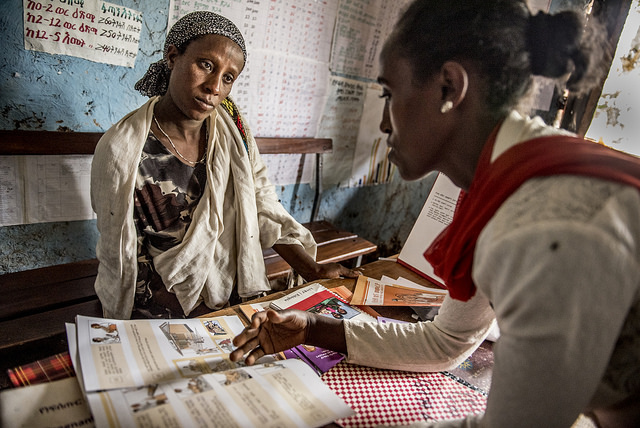Addressing Gender-Based Violence
Worldwide, one out of every three women experiences gender-based violence (GBV). Studies across multiple global regions have consistently demonstrated that GBV is associated with poor reproductive and maternal and child health outcomes, including death, disability, sexually transmitted infections (including HIV), substance abuse, and depression. Violence during pregnancy has also been associated with a range of negative health outcomes, such as miscarriage, late entry into prenatal care, stillbirth, hemorrhage, and obstetric complications.
MCSP worked to prevent GBV, to identify survivors and link them to care, and to strengthen post-GBV services in facilities through:
- Skills-building, monitoring quality of GBV services, and mentorship;
- Mapping the availability of services and gauging provider knowledge, attitudes and practices;
- Implementing GBV quality assurance standards in health facilities;
- Integrating appropriate GBV screening into antenatal care and family planning services, and examining the impact of screening on care for women; and
- Raising community awareness and dialogue about GBV to increase demand for services, reduce stigma against survivors, and to engage whole communities in GBV prevention.

